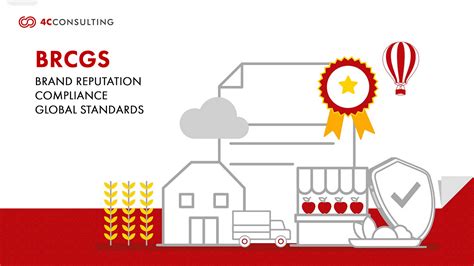Food Safety and Quality Assurance Standards are essential for ensuring the health and well-being of consumers, as well as the success of food businesses. The Food Safety Modernization Act (FSMA) and the Hazard Analysis and Critical Control Points (HACCP) system are two critical frameworks that guide the food industry in maintaining high standards of food safety and quality. However, a more comprehensive and integrated approach is needed to address the complexities of the modern food supply chain.
In this context, the Food Safety System Certification (FSSC) 22000, also known as FSSC, has emerged as a valuable tool for food manufacturers, processors, and suppliers. FSSC 22000 is an internationally recognized certification scheme that combines the requirements of ISO 22000, a food safety management system standard, with the requirements of ISO/TS 22002-1, a technical specification for food safety management systems. By achieving FSSC 22000 certification, organizations can demonstrate their commitment to food safety and quality, and enhance their reputation in the market.

Benefits of FSSC 22000 Certification
FSSC 22000 certification offers several benefits to food organizations, including:
- Improved Food Safety: FSSC 22000 certification demonstrates an organization's commitment to food safety and quality, and helps to minimize the risk of foodborne illnesses.
- Enhanced Reputation: FSSC 22000 certification is recognized globally, and can enhance an organization's reputation in the market.
- Increased Customer Trust: By achieving FSSC 22000 certification, organizations can demonstrate their commitment to food safety and quality, and increase customer trust.
- Compliance with Regulatory Requirements: FSSC 22000 certification helps organizations to comply with regulatory requirements, and reduces the risk of non-compliance.
FSSC 22000 Certification Process
The FSSC 22000 certification process involves several stages, including:
- Gap Analysis: A gap analysis is conducted to identify the gaps between the organization's current food safety management system and the requirements of FSSC 22000.
- Implementation: The organization implements the necessary changes to its food safety management system to meet the requirements of FSSC 22000.
- Internal Audit: An internal audit is conducted to ensure that the organization's food safety management system is operating effectively.
- Management Review: A management review is conducted to ensure that the organization's food safety management system is aligned with its overall business strategy.
- Certification Audit: A certification audit is conducted by a third-party auditor to ensure that the organization's food safety management system meets the requirements of FSSC 22000.
FSSC 22000 Certification Requirements
To achieve FSSC 22000 certification, organizations must meet the following requirements:
- Food Safety Policy: The organization must have a food safety policy that outlines its commitment to food safety and quality.
- Food Safety Objectives: The organization must establish food safety objectives that are measurable and achievable.
- Food Safety Management System: The organization must have a food safety management system that includes procedures for identifying and controlling hazards, monitoring and measuring performance, and continuous improvement.
- Training and Awareness: The organization must provide training and awareness programs for employees on food safety and quality.

FSSC 22000 Certification Benefits for Small and Medium-Sized Enterprises (SMEs)
FSSC 22000 certification can benefit SMEs in several ways, including:
- Improved Food Safety: FSSC 22000 certification demonstrates an SME's commitment to food safety and quality, and helps to minimize the risk of foodborne illnesses.
- Increased Customer Trust: By achieving FSSC 22000 certification, SMEs can demonstrate their commitment to food safety and quality, and increase customer trust.
- Enhanced Reputation: FSSC 22000 certification is recognized globally, and can enhance an SME's reputation in the market.
- Compliance with Regulatory Requirements: FSSC 22000 certification helps SMEs to comply with regulatory requirements, and reduces the risk of non-compliance.
FSSC 22000 Certification for Food Manufacturers
FSSC 22000 certification is essential for food manufacturers, as it demonstrates their commitment to food safety and quality. By achieving FSSC 22000 certification, food manufacturers can:
- Improve Food Safety: FSSC 22000 certification helps food manufacturers to identify and control hazards, and minimize the risk of foodborne illnesses.
- Increase Customer Trust: By achieving FSSC 22000 certification, food manufacturers can demonstrate their commitment to food safety and quality, and increase customer trust.
- Enhance Reputation: FSSC 22000 certification is recognized globally, and can enhance a food manufacturer's reputation in the market.
- Comply with Regulatory Requirements: FSSC 22000 certification helps food manufacturers to comply with regulatory requirements, and reduces the risk of non-compliance.

Conclusion
In conclusion, FSSC 22000 certification is an essential tool for food organizations, including SMEs and food manufacturers, to demonstrate their commitment to food safety and quality. By achieving FSSC 22000 certification, organizations can improve food safety, increase customer trust, enhance their reputation, and comply with regulatory requirements. The FSSC 22000 certification process involves several stages, including gap analysis, implementation, internal audit, management review, and certification audit. Organizations must meet the requirements of FSSC 22000, including having a food safety policy, food safety objectives, food safety management system, and training and awareness programs.
We hope this article has provided valuable insights into FSSC 22000 certification and its benefits for food organizations. If you have any questions or comments, please feel free to share them with us.
Gallery of Food Safety and Quality Assurance Standards






FAQs
What is FSSC 22000 certification?
+FSSC 22000 certification is an internationally recognized certification scheme that combines the requirements of ISO 22000, a food safety management system standard, with the requirements of ISO/TS 22002-1, a technical specification for food safety management systems.
What are the benefits of FSSC 22000 certification?
+The benefits of FSSC 22000 certification include improved food safety, increased customer trust, enhanced reputation, and compliance with regulatory requirements.
Who can benefit from FSSC 22000 certification?
+FSSC 22000 certification can benefit food organizations, including SMEs and food manufacturers, that want to demonstrate their commitment to food safety and quality.
